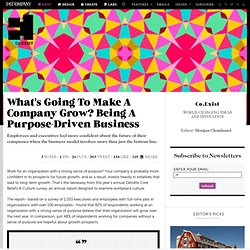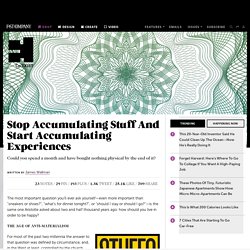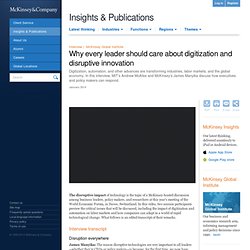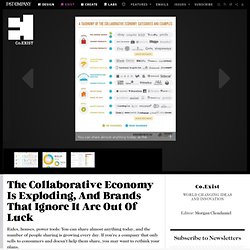

What's Going To Make A Company Grow? Being A Purpose-Driven Business. Work for an organization with a strong sense of purpose?

Your company is probably more confident in its prospects for future growth, and as a result, invests heavily in initiatives that lead to long-term growth. That's the takeaway from this year's annual Deloitte Core Beliefs & Culture survey, an annual report designed to examine workplace culture. The report--based on a survey of 1,053 executives and employees with full-time jobs in organizations with over 100 employees--found that 82% of respondents working at an organization with a strong sense of purpose believe that their organization will grow over the next year. In comparison, just 48% of respondents working for companies without a sense of purpose are hopeful about growth prospects.
According to respondents, a commitment to top-notch qualities and services is the main driver of confidence for purpose-driven companies. The same goes for investors. Last year, the survey came up with similar findings. The World's Top 10 Most Innovative Companies In Travel. Stop Accumulating Stuff And Start Accumulating Experiences. The most important question you'll ever ask yourself—even more important than "sneakers or shoes?

", "what's for dinner tonight? ", or "should I stay or should I go? "—is the same one Aristotle asked about two and half thousand years ago: how should you live in order to be happy? Welcome To The Purpose Economy. I’m not an economist, a sociologist, or a psychologist. I am an entrepreneur. Entrepreneurs constantly look for opportunities, hoping to find emerging trends or spot inspiration for new products or services. This kind of pattern recognition first helped me see the enormous potential for pro bono and has now helped me discern the underlying thread in what appears to be myriad emerging trends of the last decade. It’s helped me comprehend how they are all driven by the pursuit of purpose--together, they create the Purpose Economy.
In the last ten years, social innovation has become big business. Harvard professor and corporate strategist Michael Porter launched the “Social Progress Imperative,” a global index that strives to look beyond gross domestic product and provides a ranking of countries globally, based on the extent to which they are meeting the social and environmental needs of their citizens. Other large corporations have shown signs of new, purpose-focused frameworks as well. Why every leader should care about digitization and disruptive innovation. The disruptive impact of technology is the topic of a McKinsey-hosted discussion among business leaders, policy makers, and researchers at this year’s meeting of the World Economic Forum, in Davos, Switzerland.

In this video, two session participants preview the critical issues that will be discussed, including the impact of digitization and automation on labor markets and how companies can adapt in a world of rapid technological change. What follows is an edited transcript of their remarks. Interview transcript Disruption everywhere James Manyika: The reason disruptive technologies are very important to all leaders—whether they’re CEOs or policy makers—is because, for the first time, we now have technology affecting every single sector of the economy. Andrew McAfee: By now we’re all familiar with digitized text, digitized audio, and digital video. James Manyika: We also have other forms of digitization. The employment challenge James Manyika: Certainly education will help. The Collaborative Economy Is Exploding, And Brands That Ignore It Are Out Of Luck.
The so-called "collaborative economy" is gaining steam, as people increasingly choose to share and crowdsource goods, services, funding, transportation, and more.

And if brands don't adapt soon, they'll be left behind. That's the takeaway from Sharing is the New Buying, the first-ever large scale look at the participants in the collaborative economy. A collaboration between the brand council Crowd Companies, Jeremiah Owyang, and Vision Critical, a cloud-based customer community platform provider, the report surveyed more than 90,000 people in the U.S., U.K., and Canada to find out how and why people participate in the growing movement. The first step in analyzing the report is to define the term "collaborative economy". Owyang, a long-time tech industry analyst, defines it as the convergence of three ideas: the sharing economy, the maker movement, and the "co-innovation" movement. Sharers have certain traits in common. Some other big takeaways from the report: So what can companies do? The Best CEO-Designer Duos, Part II. Study: Good Design Is Good For Business. Here at Co.Design, we’re constantly singing the praises of design-driven businesses.

But “good design” can seem subjective and nebulous. Worse, it can be difficult to quantify how much design really impacts a company's bottom line. A new analysis by the Design Management Institute, a Boston-based nonprofit focused on design management, puts numbers to what design junkies suspected all along: in the past 10 years, design-driven companies outperformed the Standard & Poor's 500--a stock market index of 500 large publicly traded companies--by 228%.